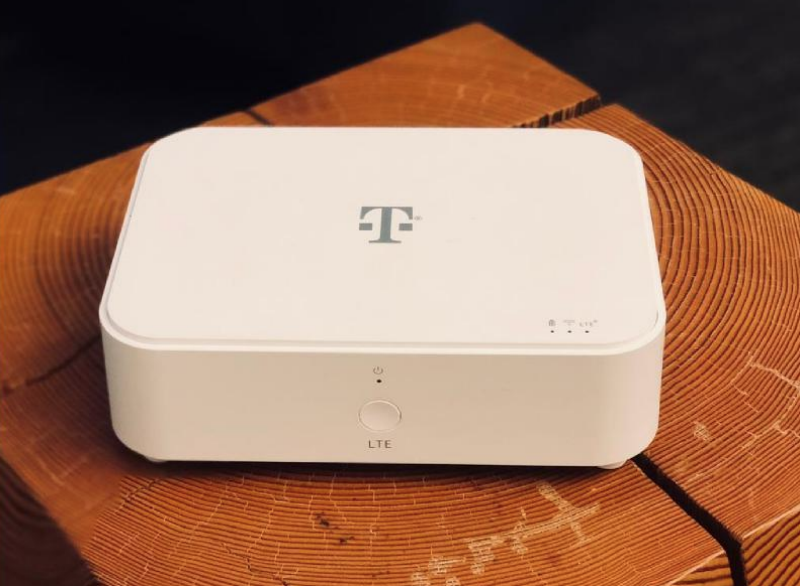T-Mobile’s latest pitch for Sprint merger: Taking on cable internet and TV

As T-Mobile's bid to merge with Sprint continues to face challenges on Capitol Hill, the company is continuing to make its case to regulators.
The latest pitch to boost the pending $26 billion deal: When combined, the "New T-Mobile" will take on cable broadband around the country.
In a blog post by CEO John Legere, T-Mobile detailed the new plan. Calling it "New T-Mobile Home Internet," Legere writes that, thanks to the companies' combined wireless spectrum, its 5G network would be able to "offer a meaningful new option to millions of Americans."
He stresses that the option will be particularly important to those in rural parts of the country where broadband alternatives are limited, if available at all.
T-Mobile would provide the router and the users would set it up themselves inside their homes using an app.
A pilot of the service running off T-Mobile's 4G LTE network will be starting "soon," according to the post, with the router being provided for free. While it will launch on the company's 4G LTE network after the merger is complete, Legere says that it will be upgraded to support 2.5 GHz spectrum and 5G (Sprint uses 2.5 GHz spectrum as part of its 5G network).
The company is hoping to have 9.5 million home broadband subscribers by 2024, Legere writes, with speeds over 100 Mbps for 90 percent of the population.

In a separate filing with the Federal Communications Commission on Thursday, T-Mobile provides an image of the 4G LTE router, a largely nondescript white box, as well as further details on the service.
More: T-Mobile says it will have unlimited 5G plans and won't raise rates
More: Sprint's 5G network will go live this May in Chicago, Atlanta, Dallas and Kansas City
More: Galaxy S10+ review: At 10th anniversary, Samsung shows it knows how to build a great phone
The company says in the filing that the 5G router will also be provided free of charge to customers as well.
In addition to an internet offering, T-Mobile's FCC notice also talks about its forthcoming cable TV alternative through Layer3, a company it acquired in 2017.
"Coupled with Home Internet, Layer3 will provide a supercharged content distribution platform providing packages with more than 275 HD channels, a growing selection of 4K video, and in-home digital video recording to homes across the country," the company writes.
Pricing information was redacted in the filing.
Pushing the rural areas
T-Mobile's filing and Legere's blog post both stress the need for broadband in rural areas, seemingly appealing to the government's previously stated need to improve internet service in those areas around the country.
Last March, Congress appropriated $600 million for the U.S. Department of Agriculture to launch a "ReConnect Program" designed to expand high-speed internet access to "rural areas without sufficient broadband access."
Not the first to use 5G for home
While T-Mobile is speaking at length about its home broadband 5G plans, it is far from the first to talk up 5G as a home broadband alternative.
Last year, Verizon launched its first 5G network as a home broadband alternative in four cities. While the company has since prioritized its mobile 5G network, it has said that will use its 5G network to offer home broadband.
T-Mobile says in its filing that the service "cannot be achieved by either T-Mobile or Sprint on its own."
"Sprint has no current plans to provide in-home fixed wireless broadband service as contemplated for the New T-Mobile. T-Mobile, as a standalone, has limited plans at best."
While the idea of increased home broadband competition is an enticing one, T-Mobile still has some convincing to do allay concerns that wireless competition will suffer if the nation's major carriers shrink from four to three.
Democrats from the House and Senate, including a number of presidential hopefuls, have recently filed letters to the FCC and Department of Justice against the merger.
While lawmakers can express their thoughts on prospective deals, final approval for mergers ultimately falls on the FCC and DOJ.
The FCC on Thursday stopped its 180-day shot clock for reviewing the deal (currently at day 122) to give the public until April 4 to comment on the new filings.
Follow Eli Blumenthal on Twitter @eliblumenthal
This article originally appeared on USA TODAY: T-Mobile’s latest pitch for Sprint merger: Taking on cable internet and TV

